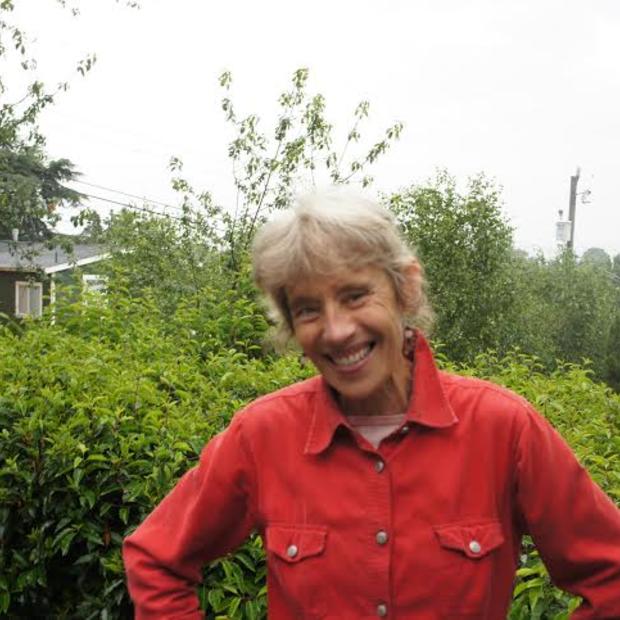Introduction: Discussions about building a sustainable economy rarely make connections between an economy dominated by military and corporate interests — the current US model — with climate change and record high joblessness. This week Green Acre Radio interviews YES! Magazine’s Sarah van Gelder. Van Gelder believes working for a sustainable and fair economy can go a long way toward addressing joblessness and other major crises facing the nation.
Click on the audio player above or here to listen.
Narration: The term “sustainable economy” is often used by those who sense the urgency for a new economic system. But what would a “sustainable economy” look like? And what’s the connection between an economy dominated by corporate and military interests, climate change and diminishing resources, and record high joblessness? Members of the Fellowship of Reconciliation, who’ve been working for peace, justice, and nonviolence since 1915, spent the Fourth of July weekend putting the pieces together. Sarah van Gelder, editor of Bainbridge-based YES! Magazine, helped lead the conversation. The mission of YES! is to build a just, sustainable and compassionate world.
Van Gelder says a sustainable economy means building a fair and local economy, rather than one based on war and corporate domination of government. She reached this conclusion after living in India as a small child and witnessing gross inequality and then returning home to see her own country involved in unjust or resource driven wars from Vietnam to Afghanistan. She says, “We have a way of life in the us that’s based on using 25% of the world’s resources even though we’re only 5% of the world’s population and that can only happen through a system that is intrinsically violent, so i got very interested in the question of how do we have societies that are nonviolent where we can live within our own means and not be looking to other people’s resources to meet our needs.”
Three crises facing the country, says van Gelder, require immediate answers. The first is the economy. Twenty-five million Americans are either unemployed or underemployed while the top 1% reap enormous benefits. The second is the crisis of war and the enormous damage being inflicted on the planet and people everywhere, from civilians to soldiers on the front line. “Then the third is probably the biggest existential crisis is the question of whether we’ll be able to take on the climate crisis before it really upends civilization.”
Local job creation is not the only answer, says van Gelder, but it can go a long way toward building a fair, sustainable economy, one that relies on ingenuity rather than fossil fuels. Anchor institutions such as universities and hospitals have a significant role to play. The city of Cleveland is an example. Instead of remaining prosperous institutions in a sea of poverty, they decided to help jumpstart the economy. “And they’ve been doing that through a series of cooperatives, including a laundry coop which provides laundry services for the hospital. There’s a solar coop, which is building solar panels on the roof of the university and then selling electricity from those solar panels.” The coop also sells electricity to other institutions in Cleveland. The third coop is a large greenhouse able to grow local edibles year round.
Van Gelder says the coops are tools communities can take to create local jobs. Another tool is what she calls “plugging leaks.” Energy is one example. Most money spent to heat homes goes to large corporate utilities or oil companies. Weatherize every home to make it energy efficient and in the process not only create local jobs but keep money circulating locally. “Because those are labor intensive processes but they result in the homeowner having more money in their pocket locally.” Another path toward a fair, sustainable economy is to find ways to keep capital circulating locally. “Because if you’re banking with a big corporate bank, that means your money and all the profit from your banking services are going out of the community; they’re going to corporate headquarters somewhere, they’re going to shareholders who are in that top 1% who don’t really need more money.” Advocates for a state bank in Washington hope to duplicate North Dakota’s model. North Dakota has the lowest rate of foreclosures in the country.
Where will the momentum to build a fair, sustainable economy come from when corporations call the shots in D.C., asks van Gelder? From a new populist movement. In June green jobs advocate, Van Jones, moveon.org, the NAACP, the Center for Community Change, and others launched a “Contract for the American Dream.” The goal is to reclaim the dream with opportunities and jobs for all. American history has always been a struggle between ordinary people and a small wealthy elite, says van Gelder. Take the Boston Tea Party, when corporations wanted tax advantages over local merchants. “It goes back and forth who’s ahead. Right now the corporations, as in the gilded age, are winning on most counts but that doesn’t mean they will continue to win. We still have power and we still can make things change."
Green Acre Radio is supported by the Human Links Foundation. Engineering by CJ Lazenby. Produced through the Jack Straw Foundation and KBCS.


